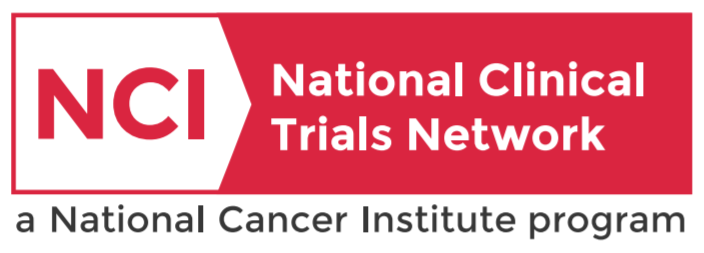
ARAR0331 | Radiation Therapy, Amifostine, and Chemotherapy in Treating Young Patients With Newly Diagnosed Nasopharyngeal Cancer
DOI: 10.7937/WTEC-MN22 | Data Citation Required | 947 Views | Image Collection
| Location | Species | Subjects | Data Types | Cancer Types | Size | Status | Updated | |
|---|---|---|---|---|---|---|---|---|
| Head | Human | 108 | MR, PT, CT, NM, RTIMAGE | Nasopharyngeal | Clinical | Limited, Complete | 2022/10/21 |
Summary
This collection contains data from the Children’s Oncology Group (COG) Clinical Trial NCT00274937, “Radiation Therapy, Amifostine, and Chemotherapy in Treating Young Patients With Newly Diagnosed Nasopharyngeal Cancer". Principal Investigator: Carlos Rodriguez-Galindo, MD. It was sponsored by NCI and performed by the Children's Oncology Group under study number ARAR0331. This phase III trial is studying how well radiation therapy, amifostine, and chemotherapy work in treating young patients with newly diagnosed nasopharyngeal cancer. Radiation therapy uses high-energy x-rays to kill tumor cells. Drugs, such as amifostine, may protect normal cells from the side effects of radiation therapy. Drugs used in chemotherapy, such as cisplatin and fluorouracil, work in different ways to stop the growth of tumor cells, either by killing the cells or by stopping them from dividing. Giving radiation therapy together with amifostine and chemotherapy may kill more tumor cells. Select patient-level data from this trial is available via the following link: https://nctn-data-archive.nci.nih.gov/node/1302. Trial Outcomes Results of the trial have been reported in the following publications:
Data Access
This is a limited access data set. To request access please register an account on the NCTN Data Archive. After logging in, use the “Request Data” link in the left side menu. Follow the on screen instructions, and enter NCT00274937 when asked which trial you want to request. In step 2 of the Create Request form, be sure to select “Imaging Data Requested”. Please contact NCINCTNDataArchive@mail.nih.gov for any questions about access requests.
Version 1: Updated 2022/10/21
| Title | Data Type | Format | Access Points | Subjects | License | Metadata | |||
|---|---|---|---|---|---|---|---|---|---|
| Images | MR, PT, CT, NM, RTIMAGE | DICOM | 108 | 803 | 7,010 | 330,052 | NIH Controlled Data Access Policy | View |
Additional Resources for this Dataset
The National Cancer Institute (NCI) has created a centralized, controlled-access database, called the NCTN/NCORP Data Archive, for storing and sharing datasets generated from clinical trials of the National Clinical Trials Network (NCTN) and the NCI Community Oncology Research Program (NCORP). Clinical data from the participants in this trial can be found at:
Citations & Data Usage Policy
Data Citation Required: Users must abide by the TCIA Data Usage Policy and Restrictions. Attribution must include the following citation, including the Digital Object Identifier:
Data Citation |
|
|
Rodriguez-Galindo, C., Krailo, M. D., Krasin, M. J., Huang, L., McCarville, M. B., Hicks, J., Pashankar, F., & Pappo, A. S. (2022). Radiation Therapy, Amifostine, and Chemotherapy in Treating Young Patients With Newly Diagnosed Nasopharyngeal Cancer (ARAR0331) (Version 1) [Data set]. The Cancer Imaging Archive. https://doi.org/10.7937/WTEC-MN22 |
Detailed Description
De-identification of DICOM dates
De-identification of dates for this dataset uses the DICOM Part 3.15 Annex E standard “Retain Longitudinal With Modified Dates Option” which allows dates to be retained as long as they are modified from the original date. TCIA implements this using a technique which de-identifies the dates while preserving the longitudinal relationship between them. Original dates will be first normalized to 01 January, 1960 and then offset relative to the date of registration for each patient. This normalized date system was chosen in order to make it obvious that the dates are not real, and to make it easy to quickly determine how much time has passed between the date of registration and the patients’ related imaging studies.
For example, if the real date of a patient’s registration was 03/27/2018 and the original imaging Study Date was 03/29/2018 then the “Days from registration” would be +2 and the anonymized TCIA Study Date would become 01/03/1960.
Insertion of computed “REGISTRATION”/Days offset from registration” value
In addition to modifying the actual date fields in the DICOM header, the “days from registration” values are calculated and stored in the DICOM tag (0012,0052) Longitudinal Temporal Offset from Event with the associated tag (0012,0053) Longitudinal Temporal Event Type set to “REGISTRATION”.
Note: If these DICOM tags are not present, DICOM tag (0012,0050) Clinical Trial Time Point ID with the associated tag (0012,0051) Clinical Trial Time Point Description provides this same information. This inconsistency is due to a change in how dates were handled in the first NCTN trials that were published on TCIA.
Related Publications
Publications by the Dataset Authors
The authors recommended the following as the best source of additional information about this dataset:
Publication Citation |
|
|
Rodriguez-Galindo, C., Krailo, M. D., Krasin, M. J., Huang, L., McCarville, M. B., Hicks, J., Pashankar, F., & Pappo, A. S. (2019). Treatment of Childhood Nasopharyngeal Carcinoma With Induction Chemotherapy and Concurrent Chemoradiotherapy: Results of the Children’s Oncology Group ARAR0331 Study. In Journal of Clinical Oncology (Vol. 37, Issue 35, pp. 3369–3376). American Society of Clinical Oncology (ASCO). https://doi.org/10.1200/jco.19.01276. PMCID: PMC6920031 |
No other publications were recommended by dataset authors.
Research Community Publications
TCIA maintains a list of publications that leveraged this dataset. If you have a manuscript you’d like to add please contact TCIA’s Helpdesk.
